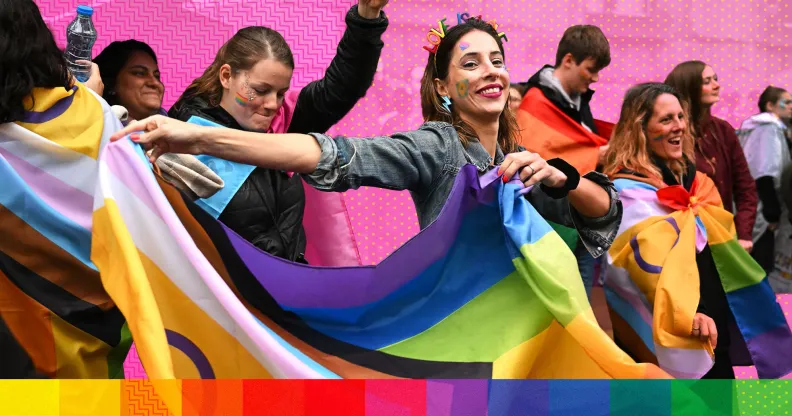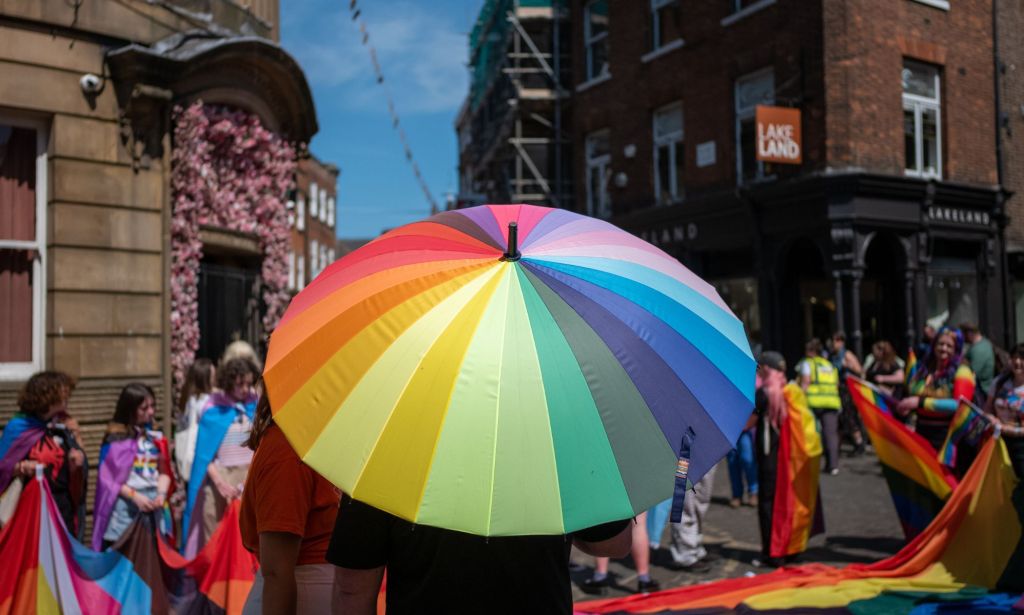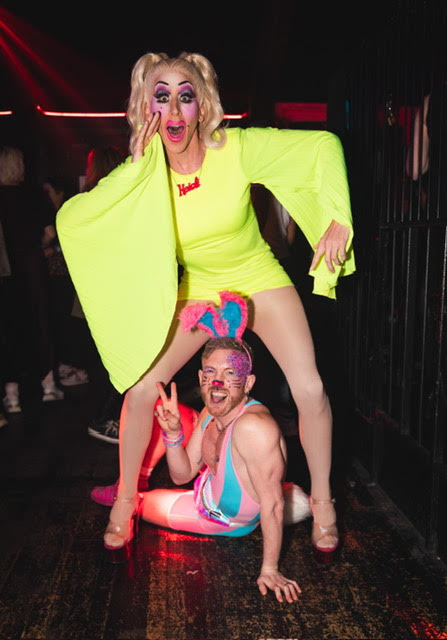Going sober at Pride: ‘We can actually celebrate the real meaning of Pride’

LGBTQ+ spaces are typically alcohol-centric – but many Pride events are starting to be more inclusive of sober people. (Getty)
Like most LGBTQ+ spaces, Pride is often inextricably linked with alcohol. But many are waking up to the fact that sober Pride spaces are vital.
When he last celebrated Pride, Michael Sargood was still living with a “long problem with drinking”.
Alcohol abuse was hurting his health, his wallet and his physical safety.
“One was just a local Pride celebration in Southend, and I didn’t make it home,” he tells PinkNews. “It’s only 10 minutes away, but I was woken up on the street by a tourist at 8am, and then I injured myself walking home.”
“The time before that, it was in Leeds Pride, and the last thing I remember is having dinner. The next thing I remembered was being kicked out of a cab at about 2am.
“I’d lost my phone, my wallet. I forgot that I didn’t live in Leeds anymore and just moved to Southend. So I walked to my old house I moved out of four years prior. I tried to get in.
“I didn’t make it back until 8am, and I’d had so much to drink that the next day, from alcohol withdrawal, I had a seizure.”
For Michael and many others, Pride was “often an excuse to over indulge in alcohol”, and it meant he “wasn’t safe at them”.

But now, after not drinking for over two years, he’s trying to celebrate Pride in a way that works for him, while helping others in a similar situation.
Michael’s alcohol-free events and meetups website Sober Socials is one of a growing number of LGBTQ-inclusive projects aiming to make going sober or alcohol-free a less isolating experience.
This Pride Month, there are also a number of Pride events hosting dedicated sober spaces, including at Manchester, Brighton, Chester and Salford.
Research suggests that LGBTQ+ people are more likely to have alcohol dependency and addiction issues that cis, straight folk. A 2021 study led by University College London researchers found that 37 per cent of gay and lesbian people reported alcohol misuse, compared with 31 per cent of bisexual people and 24 per cent of heterosexual people.
Scottish Trans Alliance found that 34.5 per cent of trans respondents to a 2017 online survey described their drinking as problematic at some point in their life, and 3.5 per cent reported consuming six or more drinks daily or almost daily.
The gay scene isn’t always sober-friendly
Stephen Wilkinson, who founded Manchester-based Sober Gay Socials, got sober back in February 2020. It wasn’t for another 18 months that he felt able to reconnect with the LGBTQ+ community.
“I wanted to venture back out onto the gay scene, but there were no bars, there were no spaces, there was nothing that – I didn’t know anybody who could help me navigate the gay scene while trying to maintain sobriety,” he says.
“So there were two choices: either stay a hermit [and] be ostracised from the gay community, or do what a lot of other people do to be part of the gay community … relapse. It’s just easier to carry on drinking, carry on doing drugs and maintain that lifestyle.”
Stephen set up Sober Gay Socials to “bridge that gap” between being sober and being out in the LGBTQ+ scene in Manchester.
He is particularly concerned for young queer people coming out onto the scene.
“You are so nervous going out for the first time onto the gay scene, and so walking into a bar, it’s instinctive to have a vodka, have a pint of lager,” he says.
“You’re surrounded by other people that are drinking and condoning your behaviour… and you end up sticking with that. So obviously, like what happened to me, it went too far.”
Sober spaces can feel safer for LGBTQ+ people
Having an unhealthy relationship with alcohol isn’t the only reason that people decide to go sober.
Neil Hudson-Basing, co-founder of London’s queer sober clubbing experience House of Happiness and senior events and community manager at PinkNews, says some worry how alcohol consumption will affect their health, abstain for religious reasons or even just realising that “life doesn’t revolve around alcohol”.
Drinking can also fuel acts of violence, meaning some queer people feel safer in alcohol-free spaces where there’s “going to be less chance of aggro”.

“We’re living in a society where violence against women, girls, trans and non-binary people and homophobia is massively on the rise,” he says. “Alcohol is a massive factor in that. It’s not a defining fact, but it is a massive factor in that.”
But more than anything, Neil says, having sober Pride spaces is about inclusion.
“It’s about making events more inclusive from the off and actually not everything revolving around alcohol… also taking into account the fact that there are many, many reasons that people don’t drink.
“It doesn’t have to be a recovery or rock bottom. Some people are choosing it because they want to progress their career.
“They might be training for something. The reason I gave up alcohol was originally only for five months because I was training for an ultra marathon.”
Michael says having sober by default spaces means more LGBTQ+ people can celebrate Pride again.
“We can actually celebrate the real meaning of Pride, which is both protest and also celebration,” he says.
“The real meaning of Pride doesn’t involve alcohol by default yet most Pride celebrations do, and so I think this is a really welcomed move where we’re seeing [sober spaces] in places like Chester, Brighton, Manchester [and] Salford.
“So it means I’ll be able to get out there again and celebrate something that’s important to me.”

